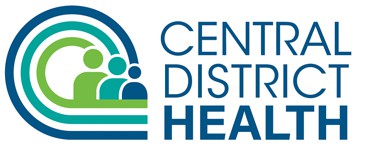Summary
In the United States, presumptive or confirmed COVID-19 cases likely from community spread have been reported from Washington state, Oregon, and California. The World Health Organization raised the global risk assessment to very high.
Healthcare providers should continue to consider COVID-19 in patients with severe respiratory illness and encourage all patients presenting with respiratory illness to take steps to minimize the potential for disease transmission in the community.
Laboratory Testing
Until the time that COVID-19 testing is commercially available, testing will be performed at the Idaho Bureau of Laboratories (IBL). Due to limited test kit availability, only specimens from patients meeting current CDC criteria for persons under investigation (PUI) are able to be tested. In general, patients presenting with mild respiratory illness are not able to be tested at this time. https://www.cdc.gov/coronavirus/2019-nCoV/hcp/clinical-criteria.html.
Please consult with Central District Health by calling (208) 327-8625 or the Division of Public Health Epidemiology Section at (208) 334-5939 before collecting specimens for COVID-19 testing. Rapid testing for influenza and other respiratory viruses should be considered prior to requesting COVID-19 testing.
Preferred specimens include nasopharyngeal and oropharyngeal swabs and sputum (if possible without induction) regardless of time of symptom onset. See https://www.cdc.gov/coronavirus/2019 nCoV/lab/guidelines-clinical-specimens.html for additional information. Contact IBL at 208-334-2235 for specimen or transport questions. Please note that IBL requires public health approval before testing.
Current commercial nucleic acid based tests do not detect the virus that causes COVID-19. Advise patients that positive human coronavirus (HKU1, NL63, 229E, and OC4) test results indicate infection with common seasonal human coronaviruses but not the novel coronavirus that causes COVID-19.
Infection Prevention Considerations
If you suspect a patient may have COVID-19, notify infection prevention staff in your facility. Patients presenting with symptoms of respiratory infection should be instructed to wear a facemask as soon as they are identified. Evaluate patients in a private room with the door closed, ideally an airborne infection isolation room. Healthcare personnel entering the room should use standard precautions, contact precautions, airborne precautions, and eye protection (e.g., goggles or a face shield). See https://www.cdc.gov/coronavirus/2019-nCoV/infection-control.html for detailed infection prevention and control recommendations and updates.
Although testing for COVID-19 is not available at this time for the majority of patients presenting with acute respiratory infection, patients should still be instructed to take steps to minimize the spread of illness in the community. Specific steps include staying home and avoiding close contact with others while ill, covering coughs and sneezes with a tissue, washing hands often, and disinfecting frequently touched surfaces.
Additional resources
- A CDC Clinician Outreach and Communication Activity (COCA) call on COVID-19 will be held Thursday, March 5 at 12:00 pm MT. CME is available. For call information, see https://emergency.cdc.gov/coca/calls/2020/callinfo_030520.asp.
- CDC COVID-19 for healthcare: https://www.cdc.gov/coronavirus/2019-ncov/hcp/index.html
- Central District Health: COVID-19
- Idaho Department of Health & Welfare: https://healthandwelfare.idaho.gov/COVID19
- Idaho advisory on N95 respirators

